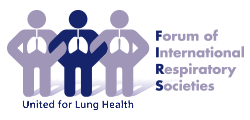January 2022
Joint statement on the implications of Philip Morris International’s acquisition of Vectura
Issued by: The European Respiratory Society, The American Thoracic Society, International Union Against Tuberculosis and Lung Diseases, Asian Pacific Society of Respirology, Asociación Latino Americana De Tórax, the Global Initiative for Asthma.
As health care organizations focused on respiratory health, our missions demand that we actively address those actions which could contribute to an increase in lung disease and risk to individual and community health. We collectively objected to and campaigned against the highly unethical and inappropriate takeover of an inhaled medicines company by a tobacco company. Despite our best efforts, we are terribly disappointed that shareholders, regulators, and the UK government allowed this acquisition to be approved. This is just the latest example of tobacco companies diversifying into health care and we are very concerned about the implications for patients, scientists, and doctors.
We are especially alarmed that technology currently used to deliver drugs to treat respiratory diseases could now be used to more efficiently deliver tobacco companies' harmful and addictive products that cause such diseases. This takeover is a dark episode for lung health and health in general and should not be repeated in the future. Tobacco products remain the leading cause of preventable death and disease worldwide. The profits, practices and power of the tobacco industry remain the biggest barriers to change. Past scientific misconduct by the industry has sown justifiable mistrust on the part of respiratory researchers and clinicians. Unified as a community, our organisations will continue to strenuously oppose future acquisitions of health care companies by the tobacco industry.
Thus, we give official notice that our organizations and members cannot condone new interactions and links with any company wholly owned by a tobacco company such as Phillip Morris International. This is in accordance with our rules, ethical codes, and the World Health Organization’s Framework Convention on Tobacco Control (the UN Tobacco Control Treaty) guidance.
Specifically:
- Employees of tobacco-owned companies will not be permitted to publish papers in our journals or present at future meetings.
- No products of tobacco-owned companies will be promoted at future events, including educational and scientific meetings, and or at any conferences we cosponsor or endorse.
- We oppose the use of lung health care technology for addictive and harmful tobacco and nicotine products.
- We reiterate our refusal to engage in partnerships or accept financial support from tobacco companies.
- We urge governments to enact legislation in accordance with Article 5.3 of the World Health Organization’s Framework Convention on Tobacco Control, to protect public interest, and prevent this tobacco tactic from happening again.
- Furthermore, we reaffirm the fundamental principle that physicians must act in the patients’ best interests, including prescribing the most effective medication for the patient’s health condition.
- We recommend that, provided it is appropriate and safe, health care professionals and patients do not use products newly developed by companies owned by the tobacco industry.
- Patients requesting to move away from current products of tobacco-owned companies should be given alternatives if appropriate and safe to do so, by their health care professionals.
